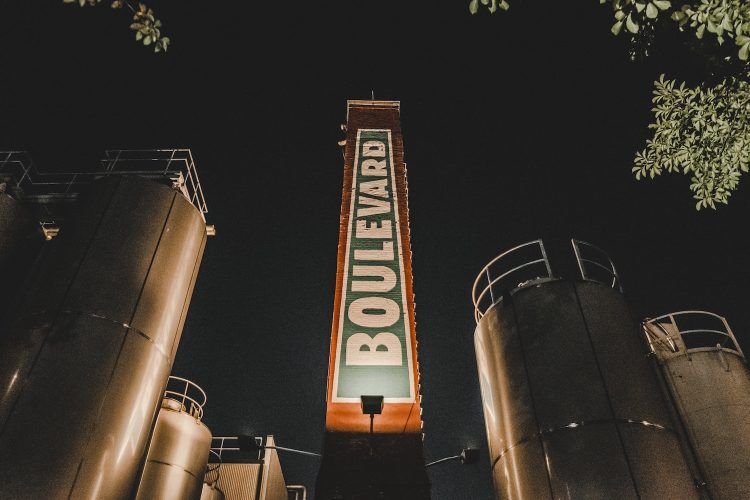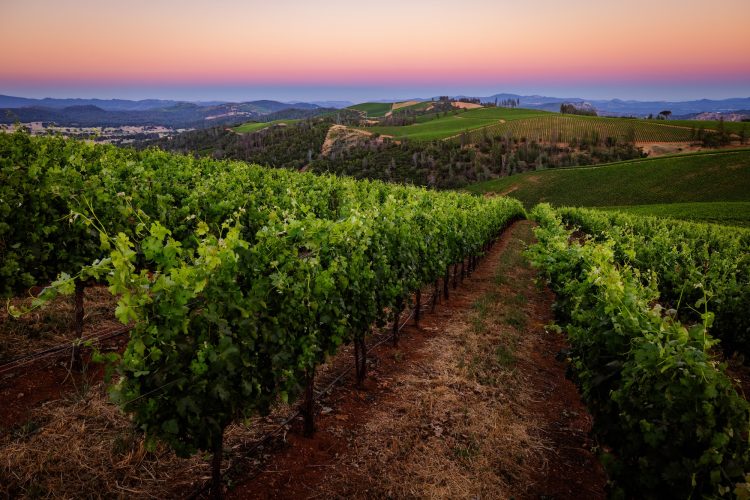Boulevard Brewing is Closing the Loop

Welcome to 3p Happy Hour! As we all eye the exit door on Friday afternoons, we’re raising our glasses to the sustainable wine, beer and spirits brands serving up stiff sips with less environmental impact while benefiting communities.
Beer buffs love a carrot-cake Belgian-style strong ale, but there’s more to that smooth pour than notes of toffee and clove. Besides an aroma of bourbon barrels, you’re also tapping into a bitter finish: waste. Brewing creates leftover grain, yeast, and hops, while breweries with taprooms or restaurants generate food waste. If it’s not enjoyed from a keg or growler, beer is packaged in aluminum cans or glass bottles. After the last sip, most of those are thrown away.
Boulevard Brewing Company — producing beer, seltzers and canned cocktails in Kansas City, Missouri — is breaking this cycle of waste. They removed all dumpsters from their brewery in 2011, switching to recycling, reusing and composting. The company also helped found a glass recycling facility. With a suite of extra sustainable practices to boot, that barrel-aged tiramisu stout just got a little sweeter.
Brewing without waste
Spearheaded by its founder, John McDonald, Boulevard Brewing has a long-standing commitment to the environment.
“When you make beer, at its core, it’s water, grains, hops and yeast,” said Adam Hall, Boulevard’s brand manager. “All of those ingredients are provided by the earth … If we aren’t taking care of the planet, it’s going to stop producing the quality resources that we need to make quality beer.”
While the brewery was established in 1989, its zero-waste initiative was kick-started nearly two decades ago.
“We broke ground on a more modern brew house, which took up a little bit more square footage of our neighborhood, which meant that it was going to have a bigger impact on our neighborhood,” Hall said. “[McDonald] wanted to do as much as he could to eliminate the outgoing waste. So, he made a commitment back in 2006 to become zero-landfill, and it took a few years to achieve that goal.”
Boulevard has a few solutions on tap to avoid tossing waste. Spent grains are given to farmers for livestock feed, while leftover hops, yeast and other organic materials are composted. The brewery also shouldered the responsibility of processing its wastewater by installing a treatment plant next to the brew house.
“Before the water goes back to the city, it goes to that treatment plant to get rid of anything in there that would be challenging for the city to have to remove on its own,” Hall said. “We try to send the water back as close as the way we got it, so that we’re reducing the amount of work that the city has to do.”
Any other waste generated at the brewery is either recycled, reused or composted.
“We have containers for different numbers of plastic for recycling,” Hall said. “We have different containers for printer paper and cardboard. We try to reuse as much as we can. Before we throw something away, we have to ask ourselves, ‘Can this be reused for something?’”
The brewery reuses paper, repurposes equipment, salvages materials for building supplies, and turns large items into storage units. When the brewery expanded, it used as many recycled or repurposed materials as possible in the new facility. Even the carriers for its 6-packs are closed boxes since, ideally, they could be reused for another purpose.
This no-waste resolution spills over to the public-facing parts of their operation, too. The company’s beer hall only uses compostable plates, napkins and cutlery, and guests using the event space must either bring compostable materials or remove what they use after the event, Hall said.
Whatever can’t be recycled, reused, or composted is given another life at a local cement manufacturer. There, it’s incinerated to generate energy, and the resulting ash is used in concrete.
Raising the recycling bar
Boulevard’s zero-waste commitment goes well beyond the brewery doors. Previously, Kansas City didn’t recycle glass. Boulevard helped change that.
“[McDonald] realized that hundreds of thousands of Boulevard beer bottles were going into local landfills,” Hall said. “He got together with some like-minded investors, and they started a side hustle that the brewery was connected to for a very long time, until it was able to generate some income, called Ripple Glass.”
Founded in 2009, the facility collects, sorts, and grinds down over 800 tons of glass from businesses and households weekly. This material is sent to other companies to be transformed into bottles and fiberglass. Today, Ripple Glass has expanded to several neighboring states, serving over 100 communities.
Boulevard also focuses on using eco-friendly packaging wherever it can. For example, its cartons and case trays are 100 percent recyclable and made from at least 70 percent post-consumer recycled material.
The company is nursing a number of other sustainable efforts, too. It installed a green roof on the brewery, which reduces the need for heating and air conditioning, and solar panels supply a portion of its energy.
But one of the brewery’s challenges is raising awareness of environmental sustainability. “Over the past couple of years, we started realizing that the way we could have more impact is by educating the consumer, not just on what we can do or what we are doing, but what the consumer can do,” Hall said.
Boulevard partners with a local environmental organization to help educate the beer-loving public. It offers increasingly popular tours focused on its sustainability initiatives. It also donates a portion of its Space Camper IPA sales to community conservation efforts like tree planting, invasive species removal and cleanups.
“Space Camper gave us an avenue to take those programs outside of the brewery and into the market,” Hall said. “That put our sustainability initiatives on the public radar.”
For his part, Hall said he’s noticed a growing number of eco-friendly beer devotees.
“Five years ago, there would have been no need for a sustainability page on our website,” Hall said. “As that becomes a topic that’s front of people’s minds, we’re like, ‘We should put this out there so people are aware that, when they are buying Boulevard beer, they can feel good about who they’re buying it from and what that business is doing to help protect the environment.’”



Post Comment